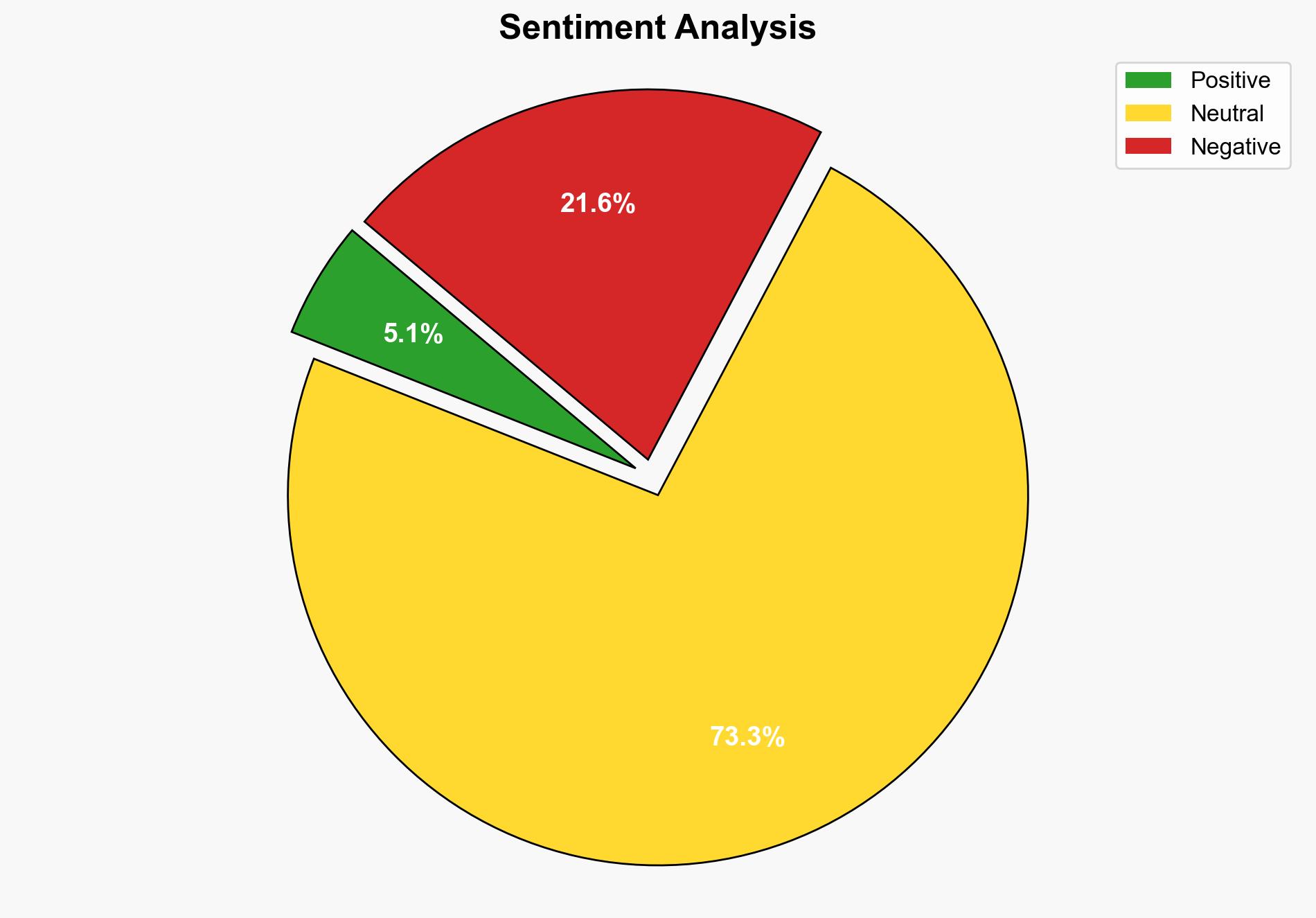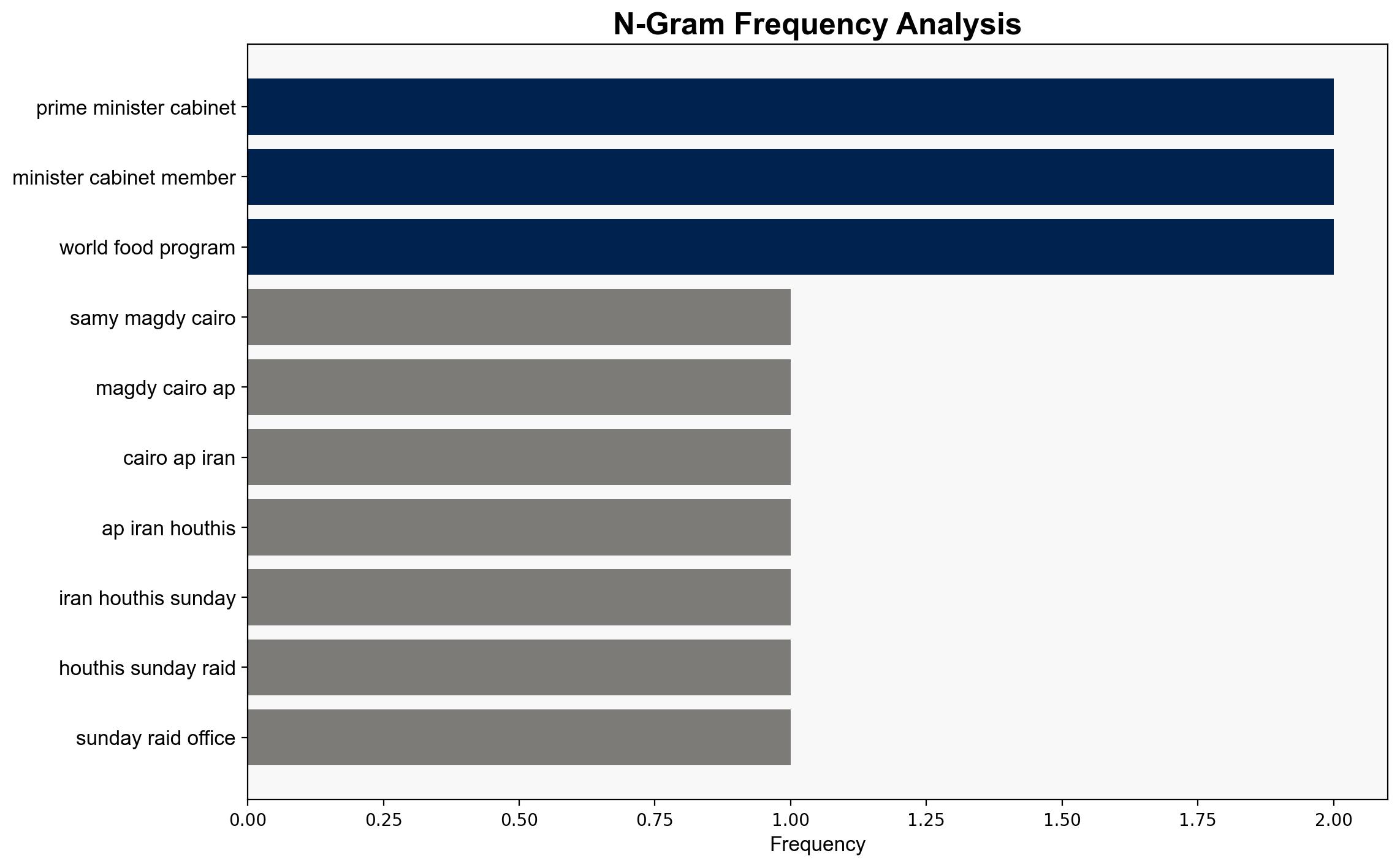Iran-backed Houthis raid UN offices in Yemen and detain several employees – Boston Herald
Published on: 2025-08-31
Intelligence Report: Iran-backed Houthis raid UN offices in Yemen and detain several employees – Boston Herald
1. BLUF (Bottom Line Up Front)
The most supported hypothesis is that the Houthis’ raid on UN offices is a strategic maneuver to assert control and retaliate against perceived international threats, particularly following Israeli strikes. Confidence level: Moderate. Recommended action: Increase diplomatic engagement to de-escalate tensions and ensure the safety of international personnel.
2. Competing Hypotheses
1. **Hypothesis A:** The Houthis conducted the raid as a direct response to Israeli military actions, aiming to demonstrate strength and retaliate against international entities perceived as aligned with Israel.
2. **Hypothesis B:** The raid is primarily an internal security measure to tighten control over international organizations within Houthi territories, possibly due to suspicions of espionage or collaboration with adversaries.
Structured Analytic Technique: Using ACH 2.0, Hypothesis A is better supported due to the timing of the raid following Israeli strikes and the ongoing geopolitical tensions involving Iran, Israel, and the Houthis. Hypothesis B lacks direct evidence but remains plausible given the Houthis’ history of controlling foreign entities within their territory.
3. Key Assumptions and Red Flags
– **Assumptions:** It is assumed that the Houthis have the capability and intent to retaliate against international actions perceived as hostile. Another assumption is that the timing of the raid is directly linked to the Israeli strikes.
– **Red Flags:** Lack of explicit statements from Houthi leadership regarding the raid’s motives. The anonymity of sources raises questions about the reliability of the information.
– **Blind Spots:** Potential internal Houthi dynamics or power struggles influencing the decision to raid UN offices are not fully explored.
4. Implications and Strategic Risks
– **Escalation Risks:** The raid could lead to increased international condemnation and potential sanctions, further isolating the Houthis and escalating regional tensions.
– **Geopolitical Impact:** This incident may strain relations between the Houthis and international organizations, complicating humanitarian efforts in Yemen.
– **Psychological Impact:** The raid could intimidate international personnel, reducing the effectiveness of aid operations and increasing the humanitarian crisis.
5. Recommendations and Outlook
- Engage in diplomatic dialogue with Houthi representatives to secure the release of detained personnel and prevent further escalations.
- Enhance security measures for international organizations operating in Houthi-controlled areas.
- Scenario Projections:
- Best Case: Diplomatic efforts lead to the release of detainees and a de-escalation of tensions.
- Worst Case: Continued raids and detentions lead to international withdrawal from Yemen, exacerbating the humanitarian crisis.
- Most Likely: A temporary standoff with gradual diplomatic progress.
6. Key Individuals and Entities
– Abeer Etefa (World Food Program spokesperson)
– Ammar Ammar (UNICEF spokesperson)
– Ahmed al-Rahawi (deceased Houthi Prime Minister)
– Abdel Majeed al-Murtada (Houthi Deputy Interior Minister)
– Abdel Karim al-Houthi (Houthi Interior Minister)
7. Thematic Tags
national security threats, regional focus, geopolitical tensions, humanitarian crisis




